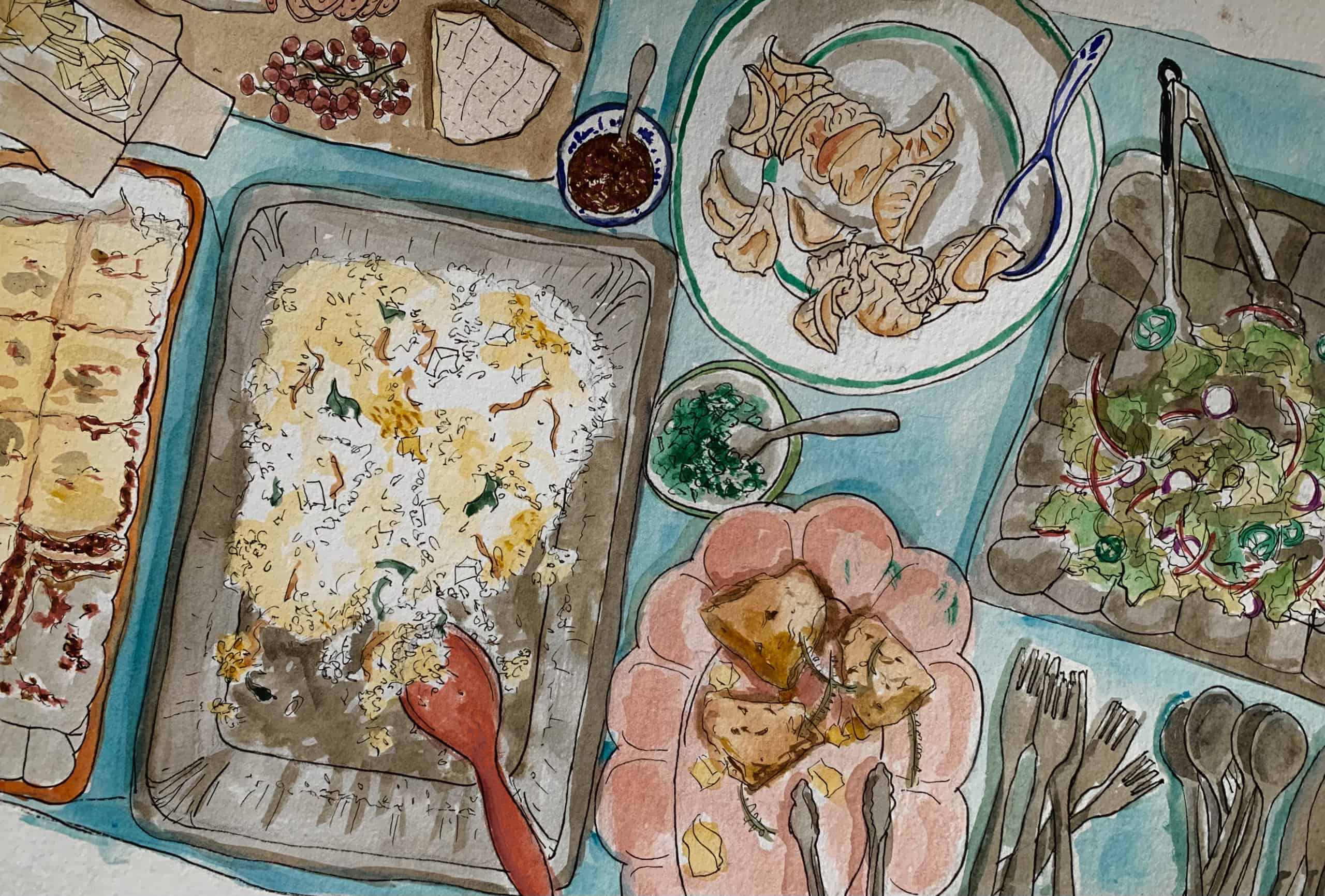I am a first-generation Indian-Canadian. For me, the ultimate comfort food is a hot bowl full of moong dal on a bed of fluffy basmati rice.
To you, this could be an odd choice. However, I refuse to apologize for it. My food preferences are personally — and also culturally — meaningful.
Because of my cultural background, I grew up eating a healthy mix of cuisines. A typical day was mapped out by turkey sandwiches for lunch and chole bhature for dinner. These eating habits have shaped what have now become my cooking habits. Though I consider myself to be a mediocre home chef at best, the dishes I make are incredibly significant to me.
The foods that I crave and cook aren’t as simple as being a product of my taste buds — though I am a sucker for certain flavours. Instead, they’re an accumulation of my experiences. All the recipes that I’ve learned, the kitchen experiments I’ve miserably failed at, and the signature dishes I’ve recreated are all subtly peppered with their own special memories.
Though it’s necessary for our nutrition, the significance and appreciation of food is also universal. For example, many religions and cultures use traditional dishes as part of their celebrations. During Hanukkah, families eat latkes and sufganiyot to celebrate the Festival of Lights. On Karamu Ya Imani, families enjoy traditional African cuisine like mazoa and muhindi. On Omisoka, people usually enjoy Toshikoshi soba because it represents a long life and removes bad luck.
Of course, as previously mentioned, the primary purpose of food is simple: survival. Some of our favourite cultural dishes were forged on the basis of economic necessity, while others were invented to stretch limited resources. For example, the traditional Welsh dish bara brith came from poverty, since it was made using leftover dough collected at the end of the week. Closer to home, in nineteenth-century America, leftover food was so fundamental to everyday cooking that the public didn’t have a name for it. Breakfast was usually the food left from dinner the night before. Because of these humble roots, the significance of our traditional fare often runs much deeper than taste.
Not only is food vital to our cultures, but it’s incredibly important to social experiences as well. Whether it’s family-style sit-down dinners where everyone talks about their day, waiting in line at the local greasy spoon with friends after class, or secretly trading snacks in elementary school despite strict allergy rules, eating is a major social activity. In fact, the first social experience many people engage in is being breastfed by their mother, an activity that enhances cognitive development and emotional interactions between a mother and their baby.
Most cultures aren’t predisposed to think about their food in monolithic terms, though the manner in which they eat is also extremely telling. In India, it can be common to eat with your hands, perhaps to personally mix your food to fit your precise taste. In Japan, it’s customary to slurp noodle soup as loud as possible because it shows enjoyment and enhances the flavours of the soup you consume. In South Korea, when you’re served food or drink, it’s normal to hold your dish or glass with two hands to be polite. Because Canadians usually eat at least three times a day, it’s no wonder that culinary habits passed onto us are often the last vestiges of our cultures that remain while others fade away.
Most of my good memories are surrounded by food. While I could deem it the single greatest unifier of cultures, I’d go even further — food inherently is culture, and it’s something that defines us wherever we go.
I feel it when I read the English muffin recipe that I used with my ex-girlfriend during our lunch breaks in high school.
I feel it when I stop by the European market from where a former coworker introduced me to apple mint Tymbark and plum-filled paczki.
I felt it when an old friend brought over a slice of coffee cake — the same kind that they had made for me the first time we met.
In all these moments — and in all moments, in general — food is culture. Food is love. Food is a memory. Whether I’m cooking, eating, or sharing my meals, they will always mean something to me.


